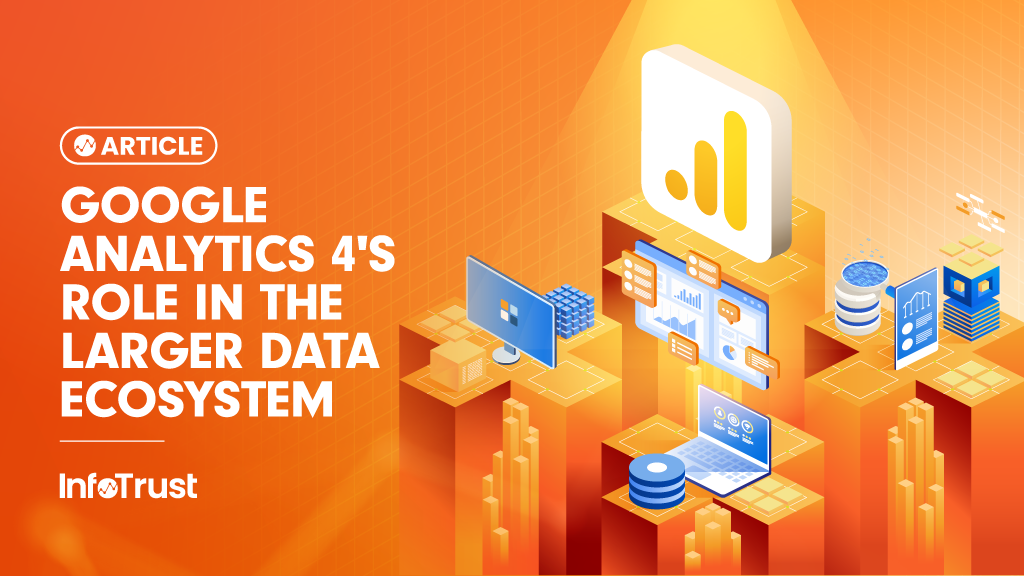A client recently asked me, ‘Why is Google Analytics 4 (GA4) important? What is its value?’
This question—and its answer—are often oversimplified. When you step back, it’s natural to consider the role each tool plays within an organization and why it’s needed. The real question then becomes: ‘What is GA4’s role in the larger data ecosystem?’ Or even more broadly, ‘What is web analytics’ role in the larger data ecosystem?’ Let’s dig in.
First and foremost, it’s important to note that Google Analytics excels at optimizing websites and campaigns. It transforms first-time visitors into lifelong customers by understanding the user journey. The extent to which each company utilizes GA4 can vary based on their specific goals. Nevertheless, Google Analytics—or a similar web analytics product like Adobe Analytics—is an essential component of a company’s larger data ecosystem.
User, Session, and Event Processing
Google Analytics efficiently processes unique users, sessions, and events, identifying individuals across devices and browsers through multiple identifiers. It captures total session data, detailing user interactions throughout each session, and organizes these insights effectively.
Attribution Processing
The platform’s robust attribution system connects users, sessions, and events to traffic sources.
This capability allows organizations to identify which campaigns and traffic sources yield the best performance.
Easy & Quick Reporting
With Google Analytics, anyone can generate ad-hoc reports at the click of a button, utilizing advanced features and diverse reporting options.
Integration with Google Marketing Platform
GA4 seamlessly integrates with the Google Marketing Platform, enabling users to effortlessly create and export audiences and conversions to Google’s advertising platforms. This improves campaign performance while providing 1:1 reporting across products. Its flexibility enables rapid development and synchronization of audiences and segments across channels for more effective targeting.
Robust Regulation Compliance
Google’s commitment to compliance is evident through features designed to meet various regulatory requirements. As digital analytics faces increasing scrutiny, Google has introduced privacy-first elements like consent mode, facilitating the collection of anonymized data while adhering to privacy laws. Additionally, Google navigates browser and device limitations, adapting its tracking accordingly—such as accommodating Apple’s Intelligent Tracking Prevention.
Data Governance
All of the above helps contribute to sound data governance. By maintaining processed user touchpoints separately from other databases, organizations can ensure legal compliance and operational integrity. This structure allows for effective data blending in a Marketing Data Warehouse, promoting both legal protection and organized data management.
Validation for Data Warehousing & Beyond
The accuracy of Google Analytics reporting also makes it an important validation tool when querying data in a data warehouse, or anywhere else for that matter. This functionality alleviates the reliance solely on engineers to ensure data accuracy, reducing the risk of disconnects from requirements.
360 Support
Lastly, should any issues arise within GA4 or its data collection, Google Support is readily available to diagnose and resolve underlying problems.
In Summary
In summary, these key points underscore the vital role Google Analytics plays for organizations looking to enhance their understanding of digital analytics. Undertaking such a complex initiative without a tool like Google Analytics is daunting, expensive, and challenging to maintain. GA4, in particular, simplifies this process by offering accessible data through a user-friendly and intuitive interface, making it easier to manage various digital analytics facets. It’s important to emphasize that while no single data collection system can fully replace another, digital analytics tools like Google Analytics serve a critical complementary role within your overall data ecosystem.


